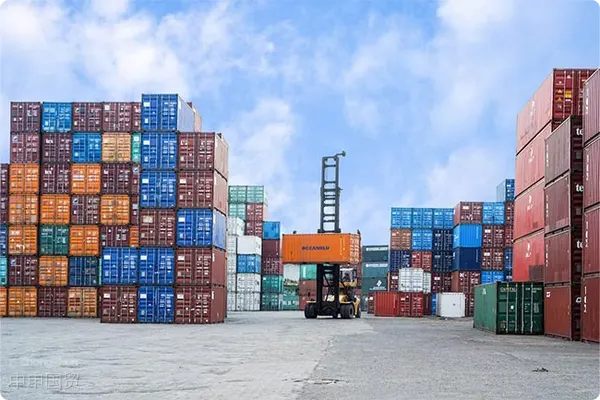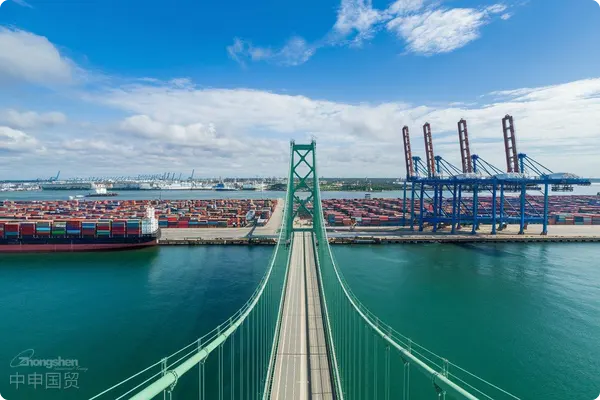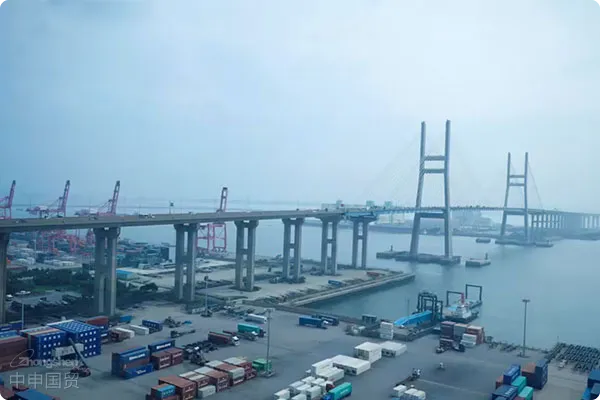- Shanghai Zhongshen International Trade Co., Ltd. - Two decades of trade agency expertise.
- Service Hotline: 139 1787 2118
Export DrawbackThe policy is a crucial aspect of international trade, balancing domestic tax burdens on products by refunding domestic taxes paid on exported goods. This enables domestic products to enter the international market tax-free, enhancing competitiveness. Therefore, rejection of export tax rebate applications can significantly impact business operations.foreign tradeHence, this article compiles common reasons and solutions for export tax rebate rejections for your reference:
I. Common Reasons for Export Tax Rebate Application Rejection
(1) Company Qualification Issues
1. Ineligible taxpayer status:Companies that are not general VAT taxpayers—small-scale taxpayers exporting goods can generally only enjoy tax exemption policies and cannot apply for tax rebates.
2. Incomplete registration:Companies that have not completed tax rebate/exemption registration or have incomplete/inaccurate registration information. For example, if key information such as tax ID, company name, registered address, or phone number changes, companies must promptly submit change applications in the tax system and complete supplementary materials.
3. Non-compliant qualifications:Companies lackingimport and exportright to operate.
(2) Exported Goods Issues
Goods ineligible for rebates: Exported goods fall under categories explicitly excluded from VAT rebate/exemption by national regulations, or goods sold as consumer products or transportation vehicles in special zones that do not qualify for rebates. 2. Goods source issues: Products are not self-produced by the company, sources do not involve VAT payments, or supplier companies have irregularities. For example, suppliers registered as non-compliant taxpayers within 2 years of tax registration or deregistered as general VAT taxpayers within 2 years, with export rebate applications using their VAT invoices reaching certain amounts or proportions.
High-risk sensitive products: Some high-risk and sensitive products are excluded from rebate policies.

(3) Declaration Document Issues
1. Incomplete documents:MissingExport Clearanceforms, invoices, contracts, shipping documents, or other necessary declaration materials, or incomplete/filled content, illegible handwriting, etc.
2. Inauthentic documentation:Providing false filing documents, forging tax refund vouchers, or submitting information that does not match the actual transaction details.
3. Document discrepancies:Inconsistent information between customs declaration forms, bills of lading, invoices, and other documents.
4. Invoice issues:Abnormalities in VAT special invoices, such as being issued after the suppliers tax registration has been canceled or deemed abnormal; discrepancies between the goods or services listed and those actually sold by the supplier; mismatched amounts with the actual purchase transaction; or inconsistencies in product names and quantities with the suppliers delivery notes, warehouse receipts, and related domestic transport documents, except for reasonable losses.
(4) Declaration timing issues
Late declaration:The enterprise fails to submit the tax refund application within the specified period, such as not declaring a tax refund more than 90 days after the goods are exported or failing to complete the required procedures within the specified cancellation period.A complete export agency agreement should be attached with:(5) Tax refund amount issues
Incorrect application amount:
The tax refund application amount does not match the actual refundable amount, such as exceeding the upper limit of the tax refund amount corresponding to the actual export value of the goods or errors in the tax refund calculation method.(6) Other issues

Illegal or non-compliant activities:
1. Enterprises engaging in fraudulent activities, tax evasion, or fraudulent export tax refund applications will not only have their applications rejected but also face severe penalties.Incorrect procedures:
2. Failure to follow the prescribed application procedures, such as submitting materials without customs review or missing necessary approval steps.Enterprise business address issues:
3. Discrepancies between the registered address and the actual business address, or the absence of a physical business or office address, leading tax authorities to deem the enterprises operations inauthentic during verification.Failure to separately account and declare:
4. Goods or services subject to different tax refund rates that are not separately declared, accounted for, or applied for tax refunds (or exemptions) will be subject to the lower tax refund rate.Failure to provide foreign exchange receipts
5. : For Category IV enterprises, foreign exchange receipts must be provided when declaring. For overdue declarations not submitted before the deadline, foreign exchange receipts or deemed foreign exchange receipt documentation must be obtained to declare a tax refund. Additionally, the Export Goods Foreign Exchange Receipts Form must be completed during declaration; otherwise, the tax refund application will be rejected.II. Solutions
(1) Understand the rejection reason
Communicate with tax authorities:
1. Enterprises should proactively contact the local tax authority responsible for export tax refunds to inquire about the specific reasons for the rejection. This can be done via phone, email, or by visiting the tax authoritys office in person.Review notification documents:
2. Carefully study the tax authoritys notice of non-approval for the tax refund application. The notice typically details the reasons for rejection.Carefully study the tax authoritys notice of rejection for tax refund applications. The notice usually details the reasons for rejection.
(2) Supplementing or Correcting Materials
1. Complete the documentation:If the tax refund application is rejected due to incomplete declaration materials, the enterprise should promptly collect and submit the missing documents, including complete export customs declarations, invoices, shipping documents, contracts, and other necessary trade credentials.
2. Correct erroneous information:For any errors in the documentation, the enterprise must make timely corrections. If necessary, communicate and coordinate with suppliers, freight forwarders, customs, and other relevant parties to reacquire correct documents or amend related information.
(3) Submitting a Written Appeal
1. Prepare appeal materials:If the enterprise fully understands the rejection reasons and believes it meets the tax refund conditions, it may submit a written appeal to the tax authority. The appeal materials should include a detailed description of the export business (transaction background, goods details, export process, etc.), evidence supporting the claim (authentic trade contracts, complete logistics documents, accurate financial records, etc.), and a clear explanation of the rejection reasons and why the application should not have been denied.
2. Submit according to prescribed procedures:As required by the local tax authority, submit the appeal materials within the specified timeframe through appropriate channels (e.g., in-person submission, mail, etc.). The appeal materials must include basic information such as the enterprise name, taxpayer identification number, and contact details to facilitate communication with the tax authority.
(4) Cooperating with Tax Authority Investigations
1. Respond actively to investigation requests:After receiving the appeal, the tax authority may reinvestigate the enterprises export business. The enterprise should cooperate fully and provide relevant accounting books, vouchers, transaction records, goods storage, and shipping details as required.
2. Proactively provide supplementary evidence:During the investigation, if the enterprise can provide additional favorable evidence to support the tax refund application—such as communication records with foreign clients proving the transactions authenticity or bank receipt records confirming normal payment collection—it should promptly submit these to the tax authority to strengthen the credibility of the appeal.

(5) Applying for Administrative Reconsideration or Administrative Litigation (Last Resort)
1. Administrative reconsideration:If the enterprise disagrees with the tax authoritys re-evaluation result, it may apply for administrative reconsideration with the higher-level tax authority within the specified timeframe. The reconsideration application must follow the prescribed format and requirements, detailing the reasons and basis for the enterprises belief that the original tax refund decision was incorrect, as well as the desired reconsideration outcome.
2. Administrative litigation:If the enterprise remains dissatisfied with the reconsideration result, it may file an administrative lawsuit with the Peoples Court under legally permissible conditions. This is a complex and time-consuming process, requiring the enterprise to thoroughly prepare relevant evidence and legal grounds, including tax laws, trade regulations, and practical business evidence proving its tax refund rights.
Related Recommendations
? 2025. All Rights Reserved. 滬ICP備2023007705號-2  PSB Record: Shanghai No.31011502009912
PSB Record: Shanghai No.31011502009912










